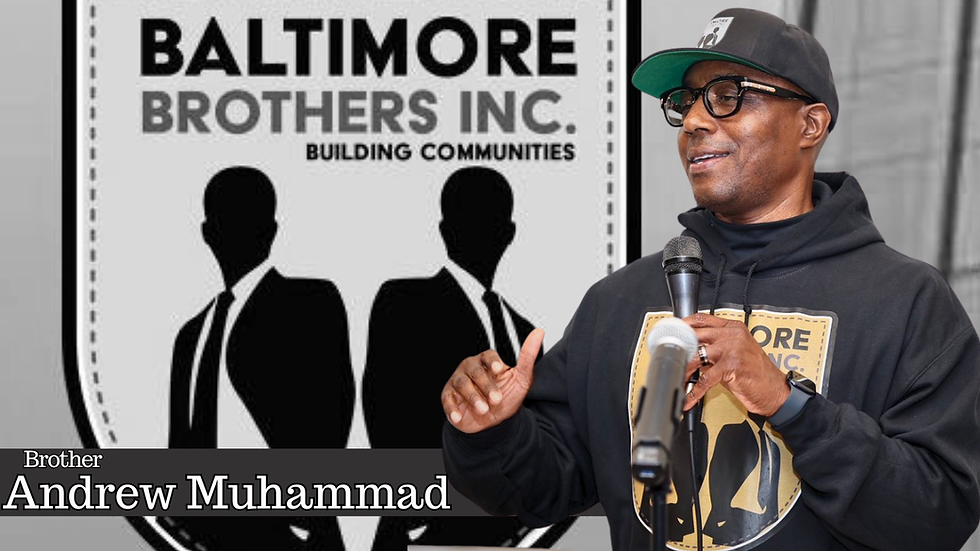Rethinking College: Guiding Our Children Toward Success
- Brother Levon X

- Jan 14
- 3 min read

In today’s world, the journey to adulthood feels more complex than ever. For many families, sending a child off to college has long been seen as the pinnacle of achievement. But as times change, so too must our perspective. Is college truly the best investment for every child? And as parents, are we doing enough to prepare our sons and daughters for the realities they’ll face on campus and beyond?
Let’s be clear: we’re not knocking college. Higher education can open doors to incredible opportunities, equip students with valuable knowledge, and serve as a launching pad for their careers. However, it’s equally important to examine whether the traditional college route is the best fit for every individual. This isn’t about devaluing education—it’s about adding a perspective worth considering, especially in a world where the stakes are higher and the challenges more significant than ever.
College has always been a place of discovery, but it’s also a place of distractions. The rising cost of education, coupled with the pressures of campus life, makes us wonder: Are our children finding themselves, or are they losing sight of their purpose?
Let’s not ignore the challenges. College students today face temptations that threaten to derail even the most focused among them. Drugs, excessive partying, and the glorification of strip culture on social media can lead some astray. It’s troubling to see society reward behaviors that prioritize short-term thrills over long-term growth. Many young women, for instance, find themselves drawn to lifestyles that promise quick financial gains but lack sustainability or dignity. Likewise, some young men mistake promiscuity for status, thinking it earns them respect among their peers.
Guiding Lights in Uncertain Times
As parents, we often breathe a sigh of relief when our children turn 18, thinking we’ve completed our job. But the truth is, our role doesn’t end—it evolves. Sending a child to college doesn’t mean relinquishing our influence; it means finding new ways to guide them.
Communication is key. Do we check in regularly, not just about grades but about life? Are we teaching them how to manage money, how to handle peer pressure, and how to maintain their focus amidst distractions? These are critical skills that aren’t taught in classrooms but are essential for success.
Mistakes will happen, and that’s part of the learning process. But there’s a fine line between giving children room to grow and allowing them to drift into behaviors that can have lifelong consequences. Temptations on campus are real, but with consistent guidance and moral grounding, they can learn to navigate these challenges with wisdom.
Is College Always the Best Path?
It’s no secret that the financial burden of higher education is heavier than ever. With student loan debt now exceeding $1.7 trillion in the United States, many graduates are finding themselves saddled with loans they’ll still be paying off in their 50s. And what’s worse, many of those degrees don’t guarantee the kind of job security or income needed to justify the cost.
This raises a critical question: Are we helping our children choose paths that lead to real opportunities, or are we pushing them into a cycle of debt with no clear payoff? For some, college is the right choice, but for others, trade schools, vocational training, or entrepreneurial ventures might offer more viable paths to success.
Consider this: careers in trades such as plumbing, electrical work, and HVAC often provide competitive salaries with far less upfront investment. Entrepreneurship is another avenue, offering young people the chance to channel their creativity and build something of their own. These alternatives aren’t just fallback options—they’re legitimate paths that can lead to financial independence and personal fulfillment.
A Call to Action
As parents, our responsibility is to help our children see the bigger picture. Why are they going to college? What do they hope to achieve? Are they prepared for the challenges they’ll face? These are the questions we need to ask, both of our children and of ourselves.
More importantly, we must provide them with the tools to succeed, no matter which path they choose. That means teaching them the value of hard work, discipline, and moral integrity. It means encouraging them to think critically about their choices and their futures. And it means staying engaged, even as they grow older, to ensure they’re on the right track.
The road to success doesn’t look the same for everyone. But with prayer, preparation, and purpose, we can help our children navigate it. Whether they choose college, a trade, or entrepreneurship, the goal is the same: a life of dignity, fulfillment, and contribution to the greater good.
Let’s make sure we’re having these conversations with our children—and with ourselves. The future of our families depends on it.





Comments